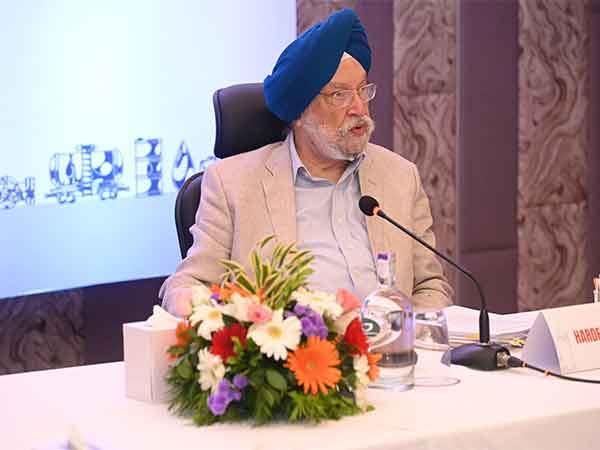Union Minister for Petroleum and Natural Gas, Shri Hardeep Singh Puri, informed the Lok Sabha today that the Government has made substantial progress in promoting biofuels as a sustainable and viable alternative to petroleum-based fuels.
In a written reply to a starred question, Shri Puri highlighted that the promotion of biofuels is being actively pursued through the National Policy on Biofuels. A key initiative under this policy is the Ethanol Blended Petrol (EBP) Programme, which aims to achieve multiple objectives—supporting environmental sustainability, reducing reliance on crude oil imports, conserving foreign exchange, and strengthening the domestic agriculture sector.
Since its inception, the EBP Programme has had a notable impact. From Ethanol Supply Year (ESY) 2014-15 up to July 2025, farmers have received over ₹1.25 lakh crore in payments, while the country has saved more than ₹1.44 lakh crore in foreign exchange. Additionally, the programme has led to a reduction of around 736 lakh metric tonnes of carbon dioxide emissions and replaced over 244 lakh metric tonnes of crude oil.
Public Sector Oil Marketing Companies (OMCs) achieved 10% ethanol blending in petrol by June 2022—five months ahead of the ESY 2021-22 target. Blending levels have steadily increased, reaching 12.06% in ESY 2022-23, 14.60% in ESY 2023-24, and 19.05% as of July 31, 2025, during the ongoing ESY 2024-25. In July 2025 alone, blending peaked at 19.93%.
To boost ethanol production capacity nationwide, the Government has taken a range of supportive measures. These include broadening the types of feedstock eligible for ethanol production, implementing an administered pricing mechanism for procurement, reducing the GST on ethanol used in the programme to 5%, and introducing Ethanol Interest Subvention Schemes (EISS) between 2018 and 2022. A separate subvention scheme has also been launched to help Cooperative Sugar Mills convert existing distilleries into multi-feedstock facilities capable of producing ethanol from both molasses and grains.
Further initiatives include Long Term Offtake Agreements (LTOAs) between OMCs and dedicated ethanol plants, improved multimodal transportation networks, and enhanced ethanol storage and infrastructure capacity.
Shri Puri also noted the launch of the ‘Pradhan Mantri JI-VAN Yojana’ in 2019, amended in 2024, aimed at fostering the development of advanced biofuels. This scheme supports projects using lignocellulosic biomass and other renewable feedstocks like crop residue. It not only generates additional income for farmers from agricultural waste but also helps curb pollution caused by stubble burning, contributes to the Swachh Bharat Mission, and creates employment opportunities in both rural and urban areas. The scheme carries a total financial outlay of ₹1,969.50 crore—₹1,800 crore earmarked for commercial-scale projects and ₹150 crore for demonstration projects.
In addition to ethanol, the Government is actively promoting biodiesel usage. Efforts include setting indicative blending targets under the National Policy on Biofuels, issuing the “Guidelines for Sale of Biodiesel for Blending with High-Speed Diesel for Transportation Purposes–2019,” and reducing the GST rate on biodiesel from 12% to 5% to encourage uptake.
Shri Puri reaffirmed the Government’s strong commitment to strengthening the country’s biofuel ecosystem. These efforts, he said, are central to ensuring energy security, reducing dependency on crude oil imports, supporting farmers, and advancing environmental goals.















